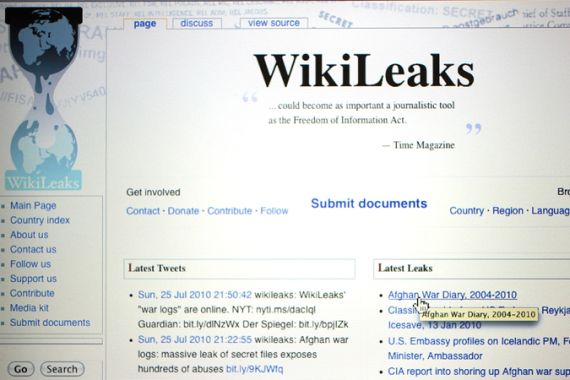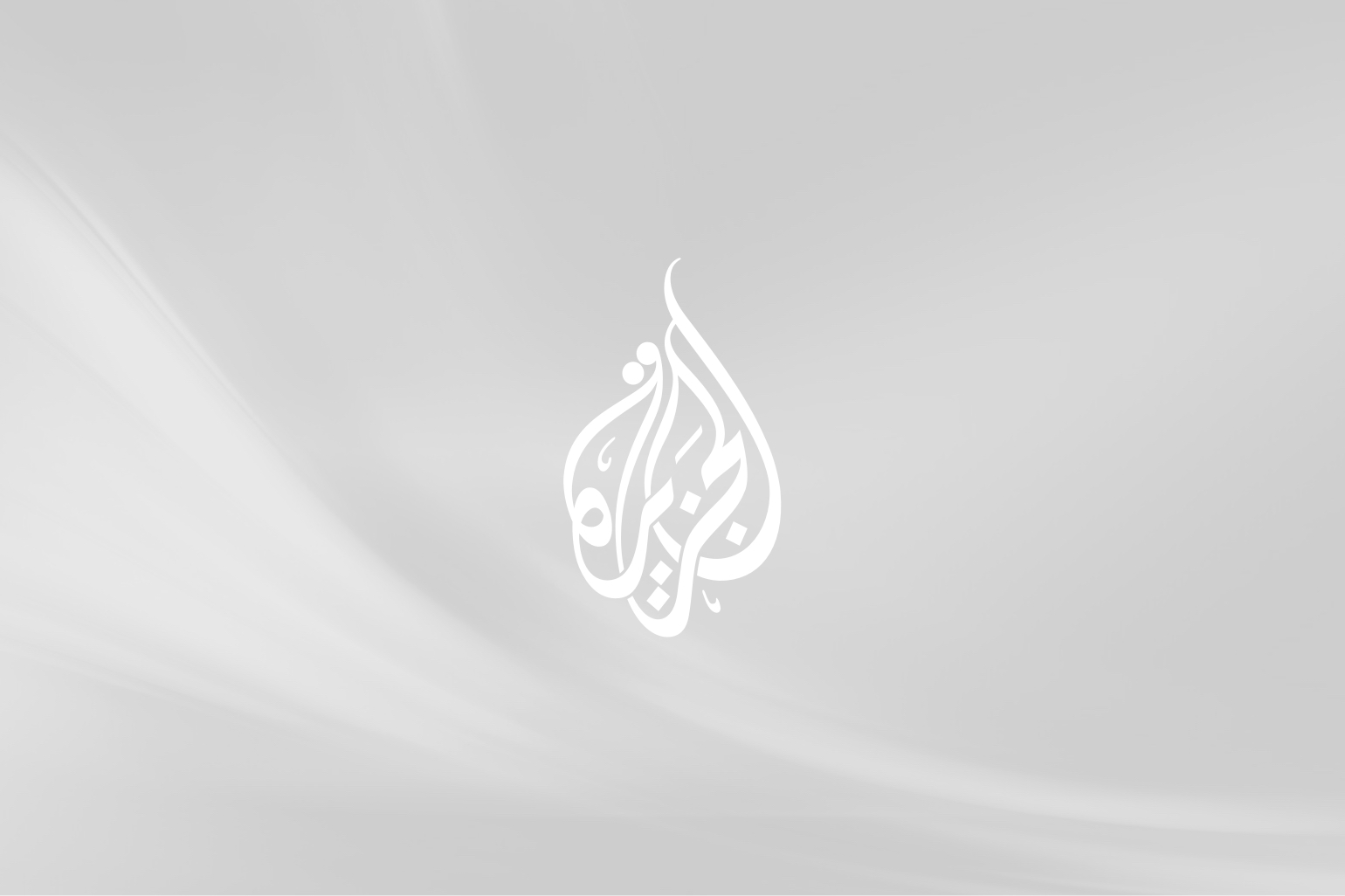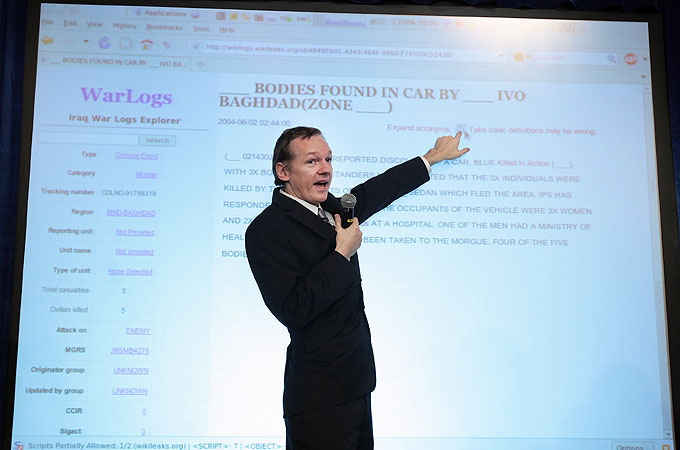US braces for new WikiLeaks release
Whistle-blowing website prepares to release sensitive US diplomatic files that may harm relations with some countries.

 |
| The Obama administration said the files could damage US relations with allies or put US diplomats at risk [Reuters] |
The United States is concerned about the impending release of classified documents by the online whistleblower group WikiLeaks, which may contain diplomatic cables with sensitive information that could harm relations with some countries or put US diplomats at risk.
WikiLeaks has touted the release – which may come this weekend – in its Twitter feed, describing it as “seven times the size of the Iraq War Logs,” and saying “the Pentagon is hyperventilating again over fears of being held to account“.
In anticipation of the posting of the leaked diplomatic cables, the administration of Barack Obama, the US president, has begun notifying foreign governments to inform them of what may be coming – although WikiLeaks has not been specific about the timing of the release.
Creating tension
“These revelations are harmful to the United States and our interests,” PJ Crowley, the US state department spokesman, said on Wednesday. “They are going to create tension in relationships between our diplomats and our friends around the world.”
Crowley said the release of confidential communications about foreign governments probably will erode trust in the United States as a diplomatic partner and could cause embarrassment if the files should include derogatory or critical comments about friendly foreign leaders.
|
|
“When this confidence is betrayed and ends up on the front pages of newspapers or lead stories on television or radio, it has an impact,” Crowley said.
A major focus of the documents is Europe, but the diplomatic cables are likely to touch on relations with many important countries in Asia and elsewhere, a source familiar with the WikiLeaks holdings told the Reuters news agency, speaking on condition of anonymity.
Crowley said the state department “has known all along” that WikiLeaks possesses classified US state department documents.
He said it was not possible, however, to predict with precision the impact of their release because the state department does not know which files will be released.
“We wish this would not happen, but we are obviously prepared for the possibility that it will,” Crowley said.
In two previous releases of leaked secret US government documents, in July and October, WikiLeaks provided them in advance to The New York Times, the Guardian newspaper in London and the German magazine Der Spiegel on condition that they publish their stories simultaneously.
The first leak contained thousands of military field reports on the war in Afghanistan; the second was a similar but larger file on the Iraq war.
Sources told Reuters the three abovementioned international news organisations have already been given access to the documents some time ago by Julian Assange, the founder of WikiLeaks.
Two of the sources said Assange has also made the documents available to at least two other European publications – the newspapers El Pais of Spain and Le Monde of France.
Assange has not confirmed or denied that assertion.
High-risk revelations
No one has been charged with providing the documents to WikiLeaks, but a person of interest in the Pentagon’s investigation is Private first class Bradley Manning, who was an US army intelligence analyst in Iraq when he was arrested by US authorities in early June and jailed in Kuwait.
On July 29, he was transferred to the Quantico Marine Corps Base in Virginia.
Diplomatic cables are internal documents that would include a range of secret communications between US diplomatic outposts and state department headquarters in Washington.
Others sources told Reuters the documents – which also report on other local controversies beyond allegations of corruption – may result in more international uproar than did the earlier release by WikiLeaks of Pentagon reports on the conflicts in Iraq and Afghanistan.
 |
| Assange has denied the rape and molestation charges, saying it is a smear campaign against his website [EPA] |
The revelations they contain are likely to range from the mundane, in the case of routine reporting on meetings between US and foreign government officials, to the explosive, in the case of candid assessments of foreign officials or the exposure of pressure tactics used by US diplomats.
One concern, for example, is that the documents may reveal the kinds of pressure the Obama administration has put on various countries to accept the transfer of Guantanamo Bay detainees who have been cleared for release but are unwelcome in their home countries.
US state department officials said privately there was concern, too, that details about certain sensitive programmes could be exposed. These might include details about surveillance at US diplomatic compounds abroad or revelations about highly secret intelligence sources or practices.
Colonel David Lapan, a Pentagon spokesman, said the files could contain information about military tactics or reveal the identities of sources.
Meanwhile on Wednesday, a Swedish appeals court upheld a court order to detain Assange for questioning over allegations of rape and sexual molestation. The 39-year-old Australian, who denies the accusations, had appealed a lower court order allowing investigators to bring him into custody and issue an international arrest warrant.
WikiLeaks prides itself as a website devoted to reforming governments worldwide by exposing their secrets, and its motto on its Twitter site is “We open governments”.
Another recent posting said: “The coming months will see a new world, where global history is redefined”.
Al Jazeera is not responsible for the content of external websites.